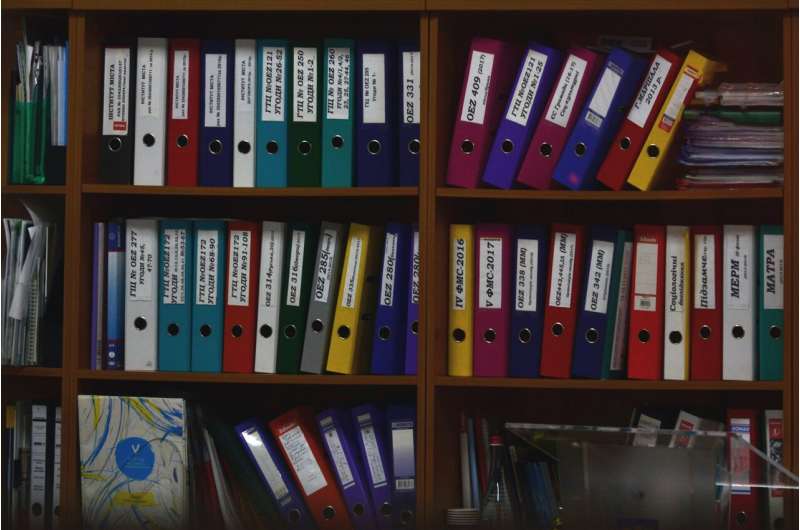This article has been reviewed according to Science X's editorial process and policies. Editors have highlighted the following attributes while ensuring the content's credibility:
fact-checked
trusted source
proofread
Multidisciplinary rounding plans may enhance patient care in the neuroscience ICU

A new type of planning document called the multidisciplinary rounding plan (MDRP) offers advantages in patient care in the neuroscience intensive care unit, compared to the traditional nursing care plan (NCP), according to a study in the Journal of Neuroscience Nursing.
"In this pilot study, the MDRP provided uniquely relevant information that is not available in a traditional NCP, and can be used by bedside nurses to make clinical judgments," according to the new research by DaiWai M. Olson, Ph.D., RN, FNCS, and colleagues of University of Texas Southwestern, Dallas. Dr. Olson is Editor of Journal of Neuroscience Nursing.
A multidisciplinary approach to care planning in the NSICU
For nearly a century, the NCP has been the standard tool for planning and communicating about nursing care for hospitalized patients. However, its value has long been debated. Especially with ongoing advances in care for patients with increasingly complex conditions, the NCP has been critiqued as an "outdated, inefficient, and ineffective tool," according to the authors.
Meanwhile, with advances in health information technology, the medical record has evolved to become a "more holistic" record that is shared across healthcare disciplines as well as with patients and families. Since its recognition as a specialty area of care in the 1990s, neurocritical care has embraced a multidisciplinary approach. Multidisciplinary rounding—involving nurses, physicians, and other professionals—has become an essential part of day-to-day care for neuroscience intensive care unit (NSICU) patients.
The more in-depth, interprofessional approach is reflected in the emergence of the MDRP. In addition to its cross-disciplinary focus, the MDRP capitalizes on technological advances to pull in up-to-date, patient-specific information from the electronic medical record.
Dr. Olson and colleagues designed a study to test the value of the MDRP, compared with the NCP, in providing contextually relevant information for use in patient care. The researchers created seven brief scenarios, reflecting situations commonly encountered in the NSICU.
Fourteen NSICU nurses were then presented with MDRPs or NCPs providing information on real-world NSICU patients. For each of the seven scenarios, numbers of correct responses were compared for cases based on NCP or MDRP information. Nurses were unaware of the patients' identities or the purpose of the study.
'MDRP is superior to NCP in providing relevant data'
The results showed significantly more correct answers based on information provided by the MDRP. Average number of correct answers was 4.51 (out of seven scenarios) based on the MDRP, compared to 0.71 based on the NCP.
"The results suggest that the MDRP is superior to the NCP in providing relevant data for nurses working in the NSICU," Dr. Olson and co-authors write. They believe the MDRP format provides more concrete, patient-specific information, including information drawn directly from the medical record. The MDRP is also written in a 'plain-speech' style, in contrast to the formal style used in traditional NCPs.
"In our NSICU, the MDRP is used as a communication tool during daily multidisciplinary rounds, and any decisions about patient goals and plans are updated in the MDRP in real time," Dr. Olson and co-authors write. "This provides a platform for nurses to facilitate collaborative care because all NSICU team members, including patient and family, are made aware of the MDRP."
The researchers note that key regulatory bodies require a comprehensive, interdisciplinary plan of care —but not an NCP specifically, as is sometimes assumed. If it is confirmed that the MDRP meets these requirements, Dr. Olson and colleagues conclude, "[F]uture studies should aim to prospectively examine the MDRP as a replacement for the NCP in the NSICU."
More information: Anjali C. Perera et al, Exploring Plan of Care Communication With a Multidisciplinary Rounding Plan to Nursing Care Plans, Journal of Neuroscience Nursing (2023). DOI: 10.1097/JNN.0000000000000690



















